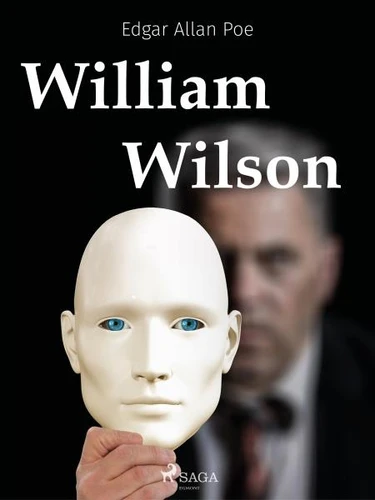Edgar Poe (1809-1849) commence à écrire en 1829. Considéré comme un poète maudit, ses écrits cauchemardesques et fantastiques sont aujourd'hui considérés comme précurseurs du surréalisme. C'est grâce aux traductions de Charles Baudelaire qu'il est connu en France.
William Wilson
Par :Formats :
Disponible dans votre compte client Decitre ou Furet du Nord dès validation de votre commande. Le format ePub est :
- Compatible avec une lecture sur My Vivlio (smartphone, tablette, ordinateur)
- Compatible avec une lecture sur liseuses Vivlio
- Pour les liseuses autres que Vivlio, vous devez utiliser le logiciel Adobe Digital Edition. Non compatible avec la lecture sur les liseuses Kindle, Remarkable et Sony
 , qui est-ce ?
, qui est-ce ?Notre partenaire de plateforme de lecture numérique où vous retrouverez l'ensemble de vos ebooks gratuitement
Pour en savoir plus sur nos ebooks, consultez notre aide en ligne ici
- Nombre de pages10
- FormatePub
- ISBN978-87-26-58690-9
- EAN9788726586909
- Date de parution26/08/2020
- Protection num.Digital Watermarking
- Taille123 Ko
- Infos supplémentairesepub
- ÉditeurSAGA Egmont
Résumé
Inspired by Poe's own tragic life, the short story clearly presages Freud's method of psychoanalysis. In a very Fight-club-like plot and situations, "William Wilson" is a journey within the mind. Some sixty years prior to Freud's clinical work and theoretical developments, Poe's story is an example of the rise of the psychological genre in literature.
A fruitful, and at the same time paranoid, the theme of the doppelganger runs strong in Edgar Allan Poe's fiction.
From "The Fall of the House of Usher" to "Morella" and "Ligeia", Poe's characters are constantly harassed by conscious entities that mirror the chaos within the protagonists' unconscious. The influence of "William Wilson" can be felt in the proliferation of contemporary movies exploring the idea of the double, such as Hitchcock's "Vertigo" (1958), Basil Dearden's "The Man Who Haunted Himself" (1970) or Darren Aronofsky's "Black Swan" (2010).
From "The Fall of the House of Usher" to "Morella" and "Ligeia", Poe's characters are constantly harassed by conscious entities that mirror the chaos within the protagonists' unconscious. The influence of "William Wilson" can be felt in the proliferation of contemporary movies exploring the idea of the double, such as Hitchcock's "Vertigo" (1958), Basil Dearden's "The Man Who Haunted Himself" (1970) or Darren Aronofsky's "Black Swan" (2010).
Inspired by Poe's own tragic life, the short story clearly presages Freud's method of psychoanalysis. In a very Fight-club-like plot and situations, "William Wilson" is a journey within the mind. Some sixty years prior to Freud's clinical work and theoretical developments, Poe's story is an example of the rise of the psychological genre in literature.
A fruitful, and at the same time paranoid, the theme of the doppelganger runs strong in Edgar Allan Poe's fiction.
From "The Fall of the House of Usher" to "Morella" and "Ligeia", Poe's characters are constantly harassed by conscious entities that mirror the chaos within the protagonists' unconscious. The influence of "William Wilson" can be felt in the proliferation of contemporary movies exploring the idea of the double, such as Hitchcock's "Vertigo" (1958), Basil Dearden's "The Man Who Haunted Himself" (1970) or Darren Aronofsky's "Black Swan" (2010).
From "The Fall of the House of Usher" to "Morella" and "Ligeia", Poe's characters are constantly harassed by conscious entities that mirror the chaos within the protagonists' unconscious. The influence of "William Wilson" can be felt in the proliferation of contemporary movies exploring the idea of the double, such as Hitchcock's "Vertigo" (1958), Basil Dearden's "The Man Who Haunted Himself" (1970) or Darren Aronofsky's "Black Swan" (2010).






















